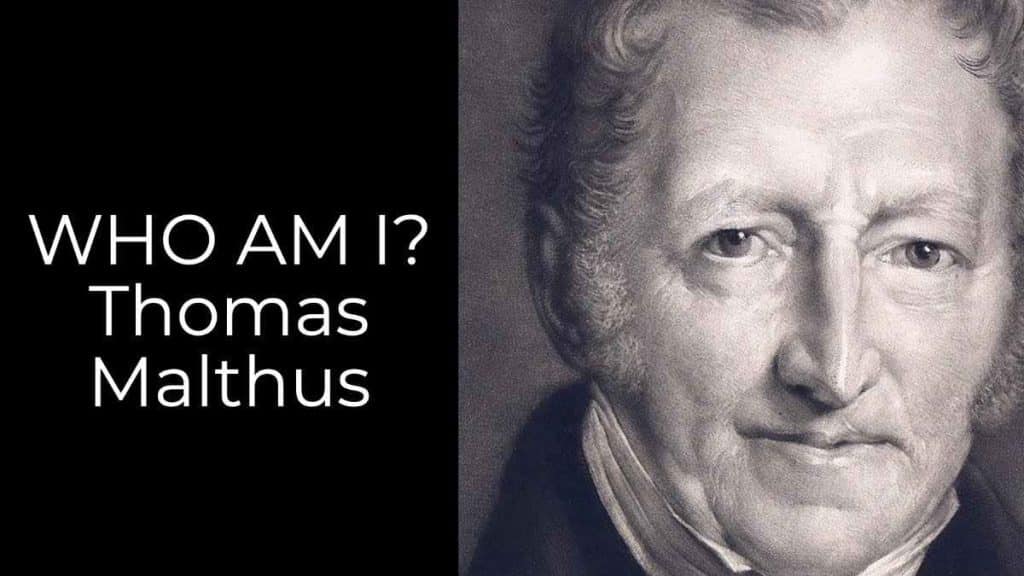Godwin
Godwin’s influential 18th-century work is critical in the history of political philosophy:
- He developed his case against the existing government and moral philosophy theories.
- Godwin discusses the character of truth and the relation between moral motivation and human will.
- He also examines how our conception of freedom and the freedom of the will affect our decisions, including whether or not we are capable of recognizing the truth and what is right.
- Godwin argues that as long as we can develop our minds to act on that truth, we will not be limited by the human body’s limitations.
Godwin’s argument is flawed. First, he failed to recognize that the two Malthus quotes do not go together. Instead, they appear nearly 400 pages apart in the Preface to Malthus’s second edition. Furthermore, Godwin failed to see the clarifications in Malthus’ second edition.
Malthus
The principles of population growth and its implications are a central concern in Malthus’ essay writer on the Principle of Population. He argues that as the means of subsistence increase, the population will follow suit. The key to solving this problem is to make people more efficient food consumers and reduce the size of the less efficient population.
Malthus’ Principle of Population outlines how the unequal distribution of food supplies affects population growth. This phenomenon is called the Malthusian growth model. This model explains the exponential growth of the population.
Godwin’s work
Malthus’ Essay on the Principle of Population is a political theory based on the law of increasing population. The original essay service was published anonymously in 1798, but the author expanded it under his name in 1802 and then published the sixth edition in 1826. Malthus argues that population growth increases arithmetically and geometrically and examines historical population control methods. It is also a classic example of political philosophy, and Godwin wrote an essential critique of Malthus’s theory.
While Malthus cites Godwin’s work and his own in his Essay, Godwin’s quotes are not directly related. Instead, they appear in different places in Malthus’ work, with the most famous quote coming from the Preface of the second edition.
Malthus’ theory of population growth
Thomas Robert Malthus first put forward his theory of population growth in 1798. He claimed that the human population will always exceed the capacity of the earth’s resources to sustain it. Furthermore, his theory states that the population growth rate is proportional to the increase in food supplies and that if the population grows unchecked, there will be famine, disease, and war.
The precise formula of the Malthusian theory of population growth has been challenged, but the basic premise still holds. While humans can keep up with their food supplies, the overall rate of population growth was not as high as Malthus initially estimated. In addition, Malthus’ theory of population growth was challenged by the development of family planning, contraception, and public health, which have led to the dramatic decline in fertility rates.
Godwin’s criticism of Malthus
Malthus’s Enquiry Concerning Political Justice (1793) cites William Godwin as an influence on his thinking. Malthus cited Godwin as a source of inspiration in his research, and his father was a passionate supporter of the philosopher. Malthus also quoted Dr. Price, a contemporary of Malthus who significantly influenced Mary Wollstonecraft.
Malthus also attempts to contrast Godwin and Adam Smith. He points out that Godwin has confused the meaning of “miserly” and “frugal.” He argues that “miserly” means hoarding money, while “frugal” means reinvesting it. While Malthus and Godwin shared a belief in the labor theory of value, they differed on the issue of the redistribution of wealth.
Malthus argued for a mixture of nature and nurture, but Godwin favored character over nurture, write my essay. His argument is based on empirical evidence from travel. He argued that the poor should be encouraged to change their improvident habits to improve their situation.
